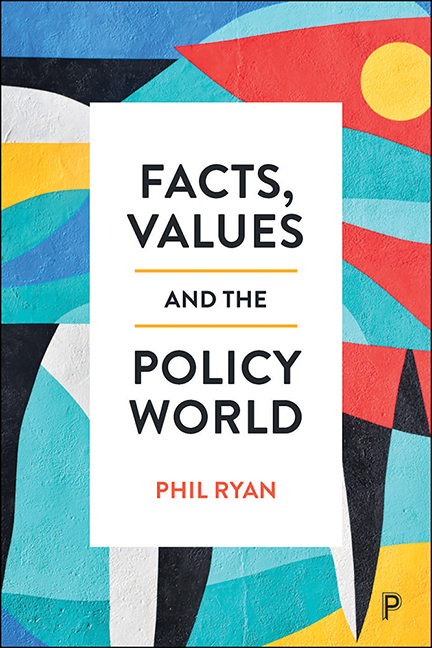5 - Forms of care
Published online by Cambridge University Press: 15 September 2022
Summary
In the exercise of any human skill, any craft, there are particular matters that require special attention, that demand we take care. When driving, for example, we know that merging on to a busy freeway, or passing on a two-ane highway, demands heightened focus. Likewise, in interpersonal relations, there are situations that call for extra care, for special tact. One way to characterize intellectual crafts, then, is to identify their forms of care: to which matters does the craftsperson offer focused attention?
This chapter will examine some of the forms of care that characterize a non-binary policy analysis. I will first argue that a traditional concern with avoiding the deduction of values from facts and vice versa is replaced in a non-binary approach by careful exploration of the variety of fact and value claims that underlie any policy position. A non-binary approach should also lead us to pay close attention to the patterns of attention behind any piece of policy analysis, and critically examine the types of trust that support the analysis, and whether that trust is warranted. A non-binary approach must be attentive to the ways in which language shapes our reality: to the uniting or sundering of phenomena by our conceptual categories, for example. Section six further argues that a non-binary approach protects even certain normative goods associated with the binary view, better than does the binary view itself.
From is to ought, and back again
In their 2012 polemic, Economists and the Powerful, Norbert Haring and Niall Douglas discuss John R. Commons's 1893 book, The Distribution of Wealth:
He argued that wealth distribution is the result of state policy, notably state regulation and legal rules, which protect and define property rights. He detailed the role that legal rules play in shaping the distribution of negotiation power and the distribution of income. Commons’ argument was that state-created entitlements like monopolies, patent, copyright and franchises enable their owners to restrict supply and raise the price of the goods they sell. Since the state is one of the most important determinants of the relative values of goods, Commons argued, the state is implicated in income distribution and should intervene to improve the bargaining power of the weaker groups.
- Type
- Chapter
- Information
- Facts, Values and the Policy World , pp. 57 - 72Publisher: Bristol University PressPrint publication year: 2022



